Alumni Spotlight: Jeff Hall (’95)
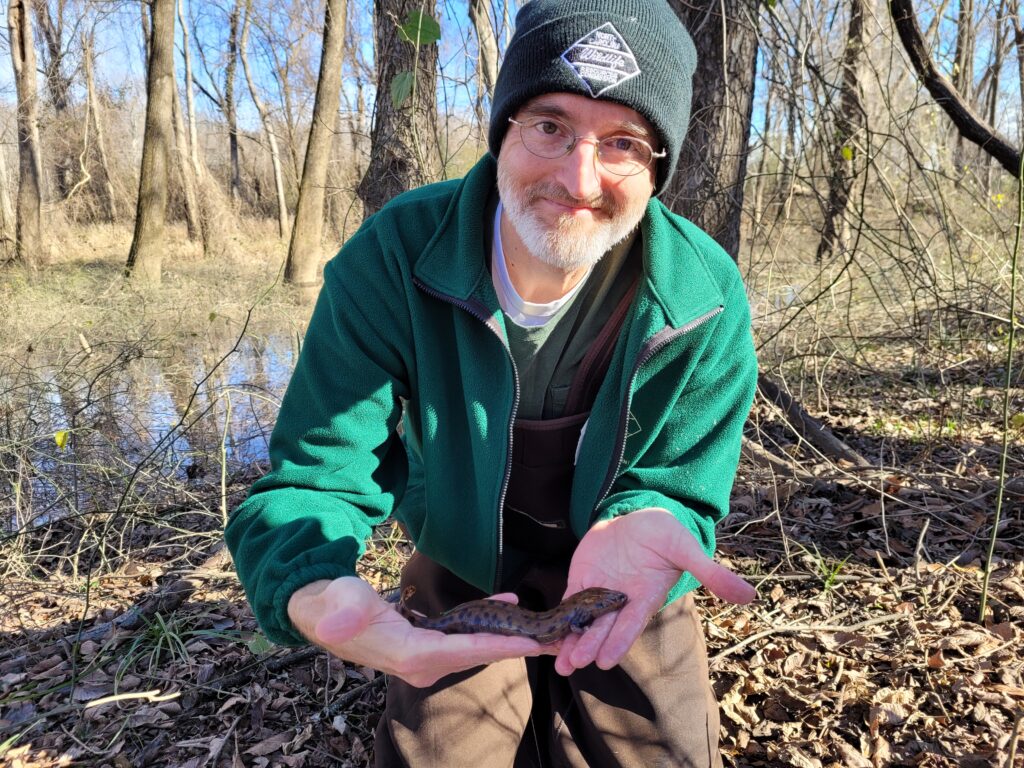
Alumnus Jeff Hall (‘95) recently chatted with the Office of Sustainability about his time as a Demon Deacon and his work with the North Carolina Wildlife Resources Commission as a wildlife biologist and herpetologist for our new Sustainable Alumni Spotlight Series.
From an early age, Hall loved the outdoors and found comfort in the woods and with the creatures around him. This early passion for the natural world spurred his desire to study biology at an institution surrounded by green spaces he could explore. Jeff fulfilled this wish by receiving a Poteat Scholarship to attend Wake Forest University and study biology. The natural spaces on and surrounding campus became his haven during his undergraduate career. Hall found joy and solace in exploring the wildlife around him in Reynolda Gardens, Reynolda Trails, and even Lake Katherine.
“My soul is fed when I’m outdoors. There is a restorative bond with our natural world that is easily dropped or missed if we don’t take an active part in trying to connect with it.”
The commitment that Wake Forest faculty have to their students and their academic journey was one of the reasons that Wake Forest stood out to Hall when deciding where he would attend college. In a sentiment that so many Demon Deacons share, Jeff still remembers the class and professor that changed the trajectory of his life – an ecology course taught by Dr. Pete Weigl, Professor Emeritus of Biology. Dr. Weigl’s enthusiasm for ecology was captured through what would become known as his catchphrase by students: “My God that’s ecology!” His fervor for teaching and excitement about what he was teaching radiated to his students, and for Jeff specifically, fueled his passion for studying the world around him. Dr. Weigl became a steadfast mentor to Jeff over his remaining years as a student, providing support and guidance when he needed it most.
After graduating from Wake and working in a multitude of positions in a range of fields such as museums, and private consultant biology, Jeff attended Eastern Carolina University and received his Masters in Biological Science. In 2007, he was hired into his present role with the North Carolina Wildlife Resources Commission as a wildlife biologist, specializing in herpetology.
In this role, Hall focuses on both collaborative and individual projects statewide under the guidance of the NC Wildlife Action Plan, which directs all of the work that the Commission does toward species that are of conservation concern. Oftentimes, that means liaising with federal and state partners like the U.S. Forest Service and the Department of Defense to discuss land and resource management beneficial to priority reptiles and amphibians like prescribed fires, restoration of ponds, and surveying efforts that are needed for rare species.
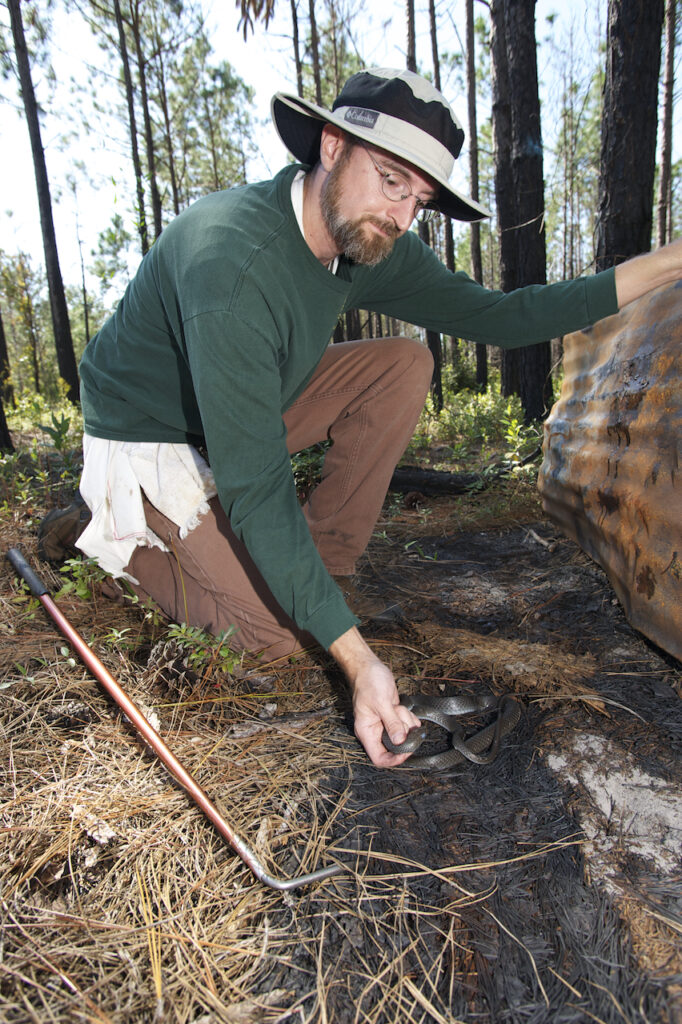
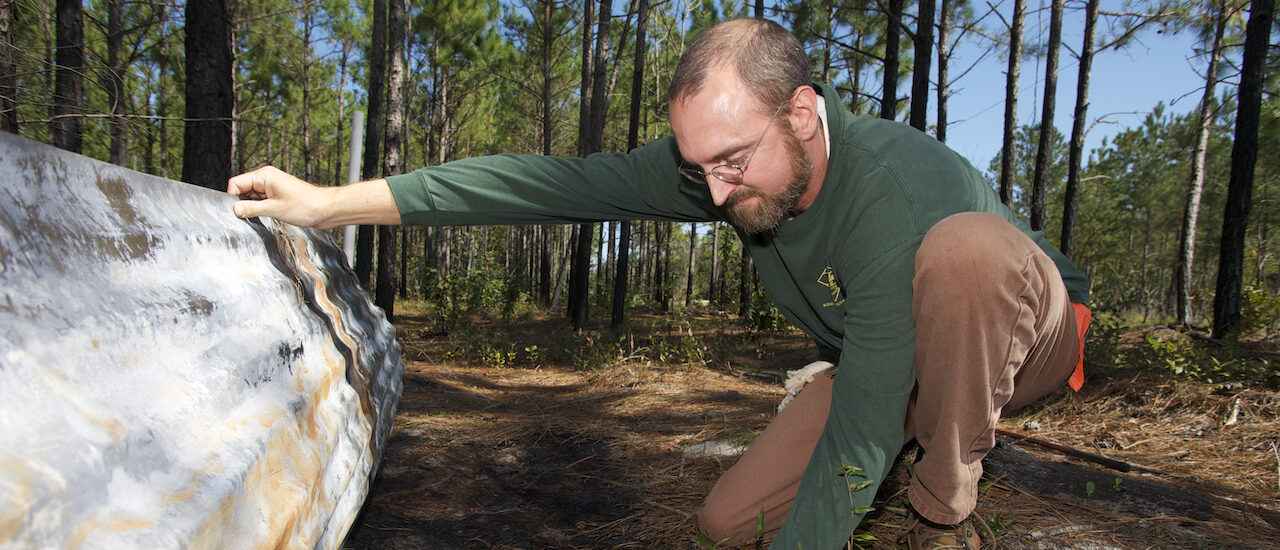
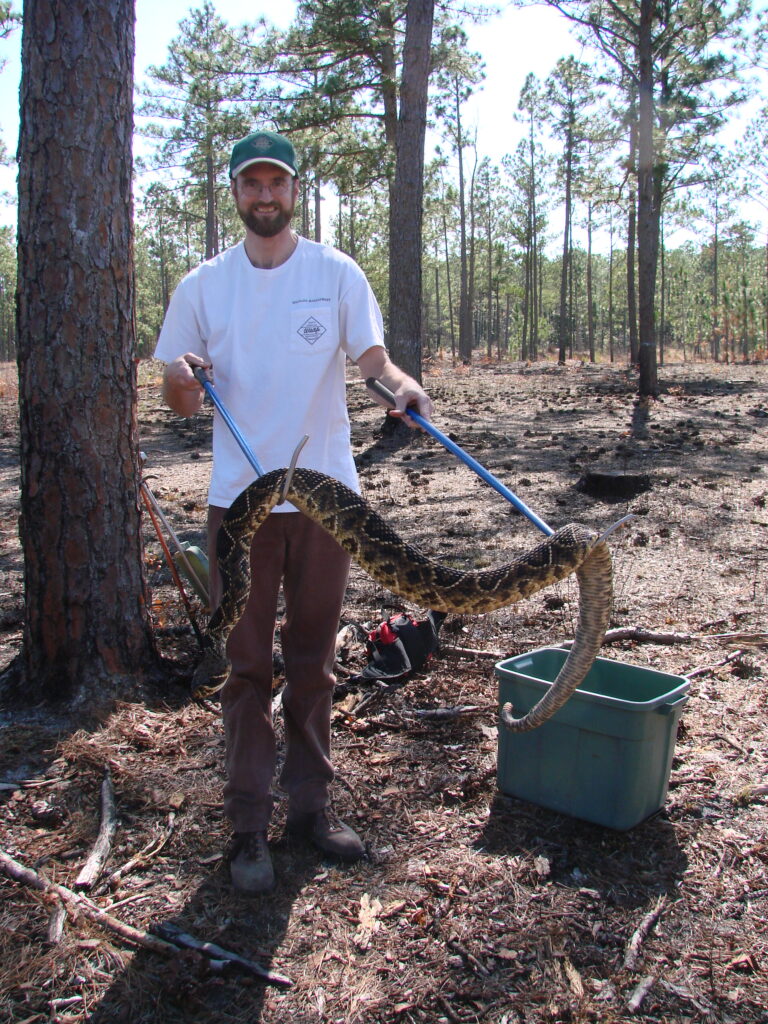
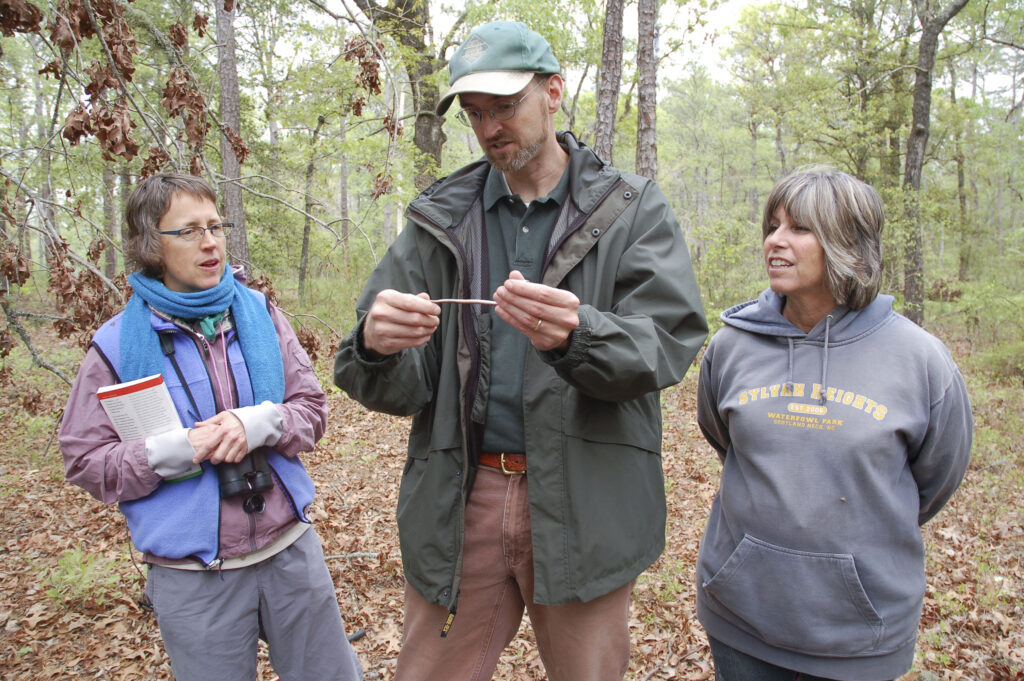
In 2009, Jeff called on the greater North Carolina community to help support his project focusing on the surveying of timber rattlesnake populations across the state. The Commission had been executing survey work focused on timber rattlesnakes for several years, but Jeff ultimately realized that they cannot be everywhere where these reptiles may exist. From 2009 – 2019, only two sighting records were submitted by community members, and Jeff’s hope for community science to become an integral part of his work dwindled. That is until 2020 and the COVID-19 pandemic. With the disruption to normal day-to-day life and an increase in people spending intentional time outdoors, the reports of rattlesnake sightings came pouring in, leading to over 100 records submitted in 2020. This trend continued with over 200 records in 2021 and more than 300 submissions expected by this year’s end.
“There are so many distractions and hardships that we have in our lives and sometimes our souls need a recharge – that recharge is something that being in nature can provide.”
Jeff Hall when asked about the drastic increase in submissions in connection to the COVID-19 pandemic
The excitement and support from the NC community have enabled Jeff and his team to learn where timber rattlesnake populations are located throughout the state and determine if they are new or ones that had been previously surveyed. For each new population, Jeff and his technician team go to the sighting location for a ground check based on the coordinates and photos supplied by community members. If it is confirmed to be a timber rattlesnake population, Hall can develop needed protections for those areas. This unique way to involve the public in conservation efforts has been a large piece of the puzzle in rattlesnake conservation and has taken the guesswork out of identifying places that are home to timber rattlesnakes across the state.
In addition to this continued surveying project, Hall is leading a project focused on the habitat and population restoration of gopher frogs across the state. Gopher frogs are found primarily in the coastal plain and sandhills region of North Carolina. With only 7 populations remaining, they are highly in peril and considered endangered by the state of North Carolina with federal endangerment status being considered. Working toward the protection and repopulation of an endangered species typically involves three steps: (1) identifying the remaining population sites, (2) understanding what has caused their population decline, and (3) determining what can be done to evade said threats or conserve them on their landscape and beginning that work.
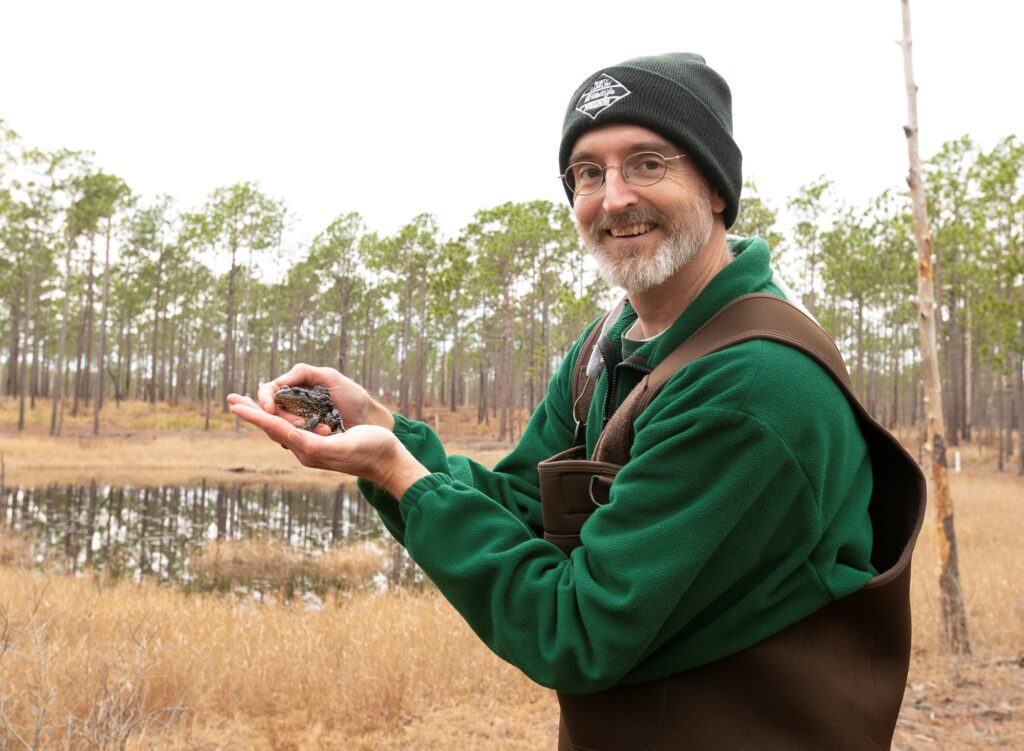
In the case of gopher frogs, changes in the landscape of the natural habitats that they live in have led to a greater than 50% loss in their populations. This steady decline in the number of gopher frogs across the state has been documented for over 30 years with species assessment tools used to determine how well or how poorly a given population is doing. Historically, the norm in wildlife biology has been to study and note declines, but not intervene to combat them. The North Carolina Wildlife Resources Commission has taken a different approach with a clear mission of maintaining wildlife and habitats. When population declines are observed, Jeff and his team step in to try to provide species, like gopher frogs, with a jumpstart in maintaining and restoring their populations.
Gopher frogs spend the majority of the year in holes in the ground in uplands, but breed in ponds. Each year, every pond that gopher frogs breed in are surveyed. If they deposit eggs, a small portion of the egg masses is extracted and brought to partner facilities at the North Carolina Zoo, several aquariums, and one of the national fish hatcheries to raise egg masses into juvenile frogs in captivity. These juvenile frogs are then released back into the ponds where the eggs were collected. Most juvenile frogs released will get eaten but the goal is for a portion of the released frogs to reach maturity, which takes 3-5 years, and be able to breed, boosting the number of gopher frogs in the state over time. The ultimate hope is that the gopher frogs will be able to grow and maintain populations on their own.
Jeff and his team have been doing releases for a few years and have seen new adults show up in surveys, which they assume they have helped raise. However, they haven’t seen an increase in the number of egg masses just yet. As they continue to work on population restoration, the team has also begun to focus on restoring the ponds that they naturally breed in and the landscapes in which they live. The US Forest Service has been a helpful partner in this work through oversight of prescribed fires in the uplands as a management tool for the habitats in which gopher frogs live. Restoration work of sites where gopher frogs were extirpated has also commenced, with a long-term goal of being able to place juvenile frogs there to mature and repopulate, ultimately restoring the population that once existed there.
“We hope that everything that we do within the wildlife commission maintains these species on their natural landscape for generations to come as part of the heritage of our state.”
